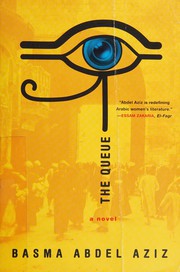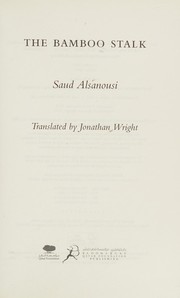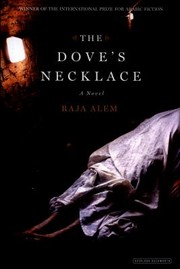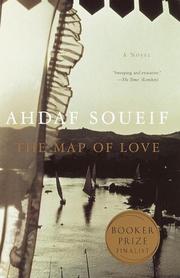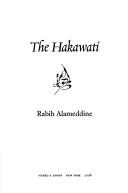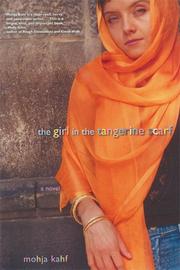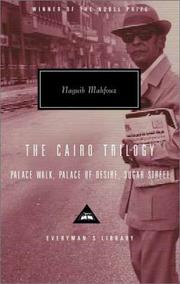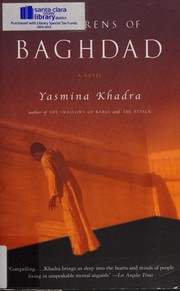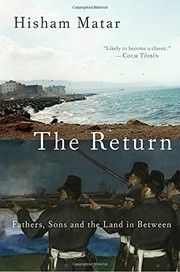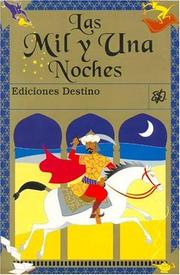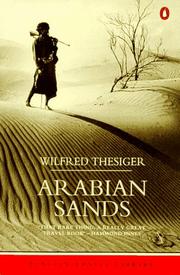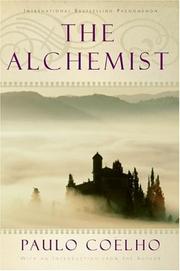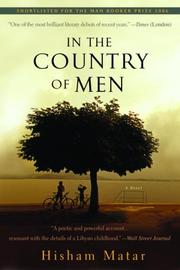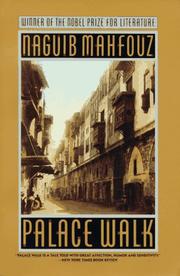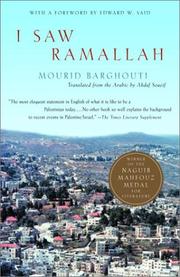Are you eager to immerse yourself in the rich and diverse world of Arabic culture? Look no further than this curated list of the 20 best books on Arabic culture. From captivating novels to insightful non-fiction, these books offer a deep dive into the traditions, history, and customs of the Arab world. Get ready to expand your knowledge and gain a new perspective with these must-read Arabic culture books.
Contents
- 1 20 Best Books About Arabic Culture
- 2 The Queue
- 3 The Bamboo Stalk
- 4 The Dove’s Necklace
- 5 The Corpse Exhibition and Other Stories of Iraq
- 6 The Yacoubian Building
- 7 The Map of Love
- 8 The Hakawati
- 9 The Blue Manuscript
- 10 The Girl in the Tangerine Scarf
- 11 The Translator
- 12 The Cairo Trilogy
- 13 The Sirens of Baghdad
- 14 The Meursault Investigation
- 15 The Return: Fathers, Sons, and the Land in Between
- 16 The Arabian Nights
- 17 Arabian Sands
- 18 The Alchemist
- 19 In the Country of Men
- 20 Palace Walk
- 21 I Saw Ramallah
- 22 Conclusion
- 23
- 24 The 20 Rich People Books: Best 2024 Update and Review
- 25 Books about Geography: 2024's Best Titles
- 26 Unveiling the Best The Age Of Exploration Books in this 2024 Update
20 Best Books About Arabic Culture
The Queue
by Basma Abdel Aziz
The Queue by Basma Abdel Aziz is a thought-provoking novel that offers a powerful commentary on bureaucracy, oppression, and resistance in a dystopian society. Set in a fictional Middle Eastern country, the story follows Yehia, a man who becomes entangled in a kafkaesque bureaucratic nightmare when he seeks permission to have a bullet removed from his body. As he navigates the endless queue and faces the absurdity of the system, his personal struggle reflects the larger societal oppression and the resilience of the human spirit. The novel provides a compelling exploration of the complexities of power, control, and the human desire for freedom in a society dominated by authoritarian rule. The Queue is a must-read for anyone interested in a captivating and insightful book on Arabic culture.
The Bamboo Stalk
by Saud Alsanousi
The Bamboo Stalk by Saud Alsanousi is a captivating novel that explores the complexities of identity, belonging, and cultural differences. Set in Kuwait, the story follows the life of a young man named Joseph who is born to a Kuwaiti father and a Filipino mother. As Joseph navigates the challenges of growing up as a mixed-race individual in a society that values homogeneity, the novel delves into themes of discrimination, societal expectations, and the search for acceptance. Through Joseph’s experiences, the author sheds light on the intricacies of Arab and Filipino cultures, providing a thought-provoking commentary on the intersection of different cultural backgrounds. The Bamboo Stalk is a compelling and poignant book about Arabic culture that offers a powerful exploration of the complexities of identity and the human experience.
The Dove’s Necklace
by Raja Alem
The Dove’s Necklace by Raja Alem is a captivating and immersive novel that offers a deep dive into the intricacies of the Arab world. Set in the bustling city of Mecca, the story follows the investigation of a brutal murder, intertwining the lives of various characters and shedding light on the complexities of Arab society. Alem’s lyrical prose and vivid descriptions bring the streets of Mecca to life, creating a rich tapestry of culture, tradition, and human emotions. This compelling book on Arabic culture delves into the nuances of religion, politics, and social dynamics, offering a thought-provoking exploration of a society in flux. The Dove’s Necklace is a must-read for anyone seeking a deeper understanding of the Arab world and its people.
The Corpse Exhibition and Other Stories of Iraq
by Hassan Blasim
The Corpse Exhibition and Other Stories of Iraq by Hassan Blasim is a haunting and powerful collection of short stories that provides a deeply moving and visceral insight into the complexities of life in Iraq. Blasim’s writing is both beautiful and brutal, delving into the dark and often surreal realities of war, oppression, and exile. The stories in this book offer a unique perspective on the human experience within the context of the Iraqi culture, and they explore themes such as loss, survival, and the struggle for meaning in the face of adversity. Blasim’s unflinching portrayal of the human condition in Iraq makes this book a must-read for anyone interested in understanding the intricacies of this rich and diverse culture.
The Yacoubian Building
by Alaa Al Aswany
The Yacoubian Building by Alaa Al Aswany is a captivating book about Arabic culture that delves into the lives of the residents of a once-grand apartment building in downtown Cairo. Through a rich tapestry of interconnected stories, the novel offers a vivid portrait of modern Egyptian society, touching on themes of class struggle, political corruption, and the complexities of love and desire. Aswany’s compelling storytelling and vivid characters provide a window into the diverse and often contradictory facets of Arabic culture, making it a must-read for anyone interested in gaining a deeper understanding of contemporary Egypt and the broader Middle Eastern region.
The Map of Love
by Ahdaf Soueif
The Map of Love by Ahdaf Soueif is a captivating book on Arabic culture that weaves together the stories of two women from different generations. Set in Egypt, the novel follows the journey of an American woman, Isabel Parkman, who discovers the diaries of her great-grandmother, Anna Winterbourne. As Isabel delves into Anna’s writings, she uncovers a love story that transcends time and cultural boundaries. Through Anna’s experiences in late 19th century Egypt, the novel beautifully explores the complexities of love, identity, and the intertwining of Western and Arabic culture. Soueif’s lyrical prose and vivid descriptions bring the rich tapestry of Egypt to life, making this a must-read for anyone interested in a beautifully crafted book about Arabic culture.
The Hakawati
by Rabih Alameddine
The Hakawati by Rabih Alameddine is a captivating and richly textured novel that delves into the traditions, folklore, and history of the Arab world. Set in modern-day Beirut, the story weaves together the narratives of several generations, mixing ancient myths and contemporary experiences to create a vibrant tapestry of Arabic culture. The novel’s title, ‘The Hakawati’, refers to a traditional Arabic storyteller, and the book itself is a celebration of the power of storytelling in Arab culture. Through its lyrical prose and intricate storytelling, The Hakawati offers a mesmerizing glimpse into the complexities and beauty of the Arab world, making it a must-read for anyone interested in exploring the diverse and enchanting world of Arabic culture.
The Blue Manuscript
by Sabiha Al Khemir
The Blue Manuscript by Sabiha Al Khemir is a captivating novel that takes readers on a mesmerizing journey through the rich tapestry of Islamic art and history. Set against the backdrop of the bustling souks and majestic mosques of 15th century Cairo, this intricately woven tale follows the quest to uncover the secrets of a mysterious manuscript. The novel delves deep into the heart of Arabic culture, offering a vivid portrayal of the beauty and complexity of the Islamic world. With its evocative prose and vivid imagery, The Blue Manuscript is a must-read for anyone interested in exploring the wonders of Islamic art and history. This book about Arabic culture will transport readers to a world of ancient mysteries and timeless beauty, making it an unforgettable literary experience.
The Girl in the Tangerine Scarf
by Mohja Kahf
The Girl in the Tangerine Scarf by Mohja Kahf is a captivating narrative that delves into the complexities of identity, faith, and belonging in the context of Arab-American culture. The novel follows the life of Khadra, a Syrian immigrant, as she navigates the challenges of assimilating into American society while holding onto her Islamic heritage. Through Khadra’s experiences, the reader gains insight into the nuances of Arab culture, family dynamics, and the struggle to reconcile tradition with modernity. The novel is a poignant exploration of the immigrant experience and offers a profound understanding of the intersections between faith, culture, and individuality. With its rich storytelling and evocative prose, The Girl in the Tangerine Scarf is a must-read for anyone interested in delving into the complexities of Arab-American identity and the immigrant experience.
The Translator
by Leila Aboulela
The Translator by Leila Aboulela is a captivating book on Arabic culture that follows the story of Sammar, a Sudanese widow living in Scotland. As she navigates the challenges of adjusting to a new culture and finds work as a translator, she grapples with her own identity and faith. The novel beautifully explores the complexities of cultural adaptation and the clash between Western and Islamic values. Through Sammar’s experiences, the reader gains insight into the rich tapestry of Arabic culture and the struggles of immigrants in a new land. Aboulela’s lyrical prose and heartfelt storytelling make this a compelling book about Arabic culture that delves into themes of love, loss, and the search for belonging.
The Cairo Trilogy
by Naguib Mahfouz
The Cairo Trilogy, written by Naguib Mahfouz, is a captivating book on Arabic culture that follows the life of the Al-Jawad family in Cairo during the early 20th century. Through the three novels: “Palace Walk”, “Palace of Desire”, and “Sugar Street”, Mahfouz masterfully portrays the intricacies of family dynamics, societal changes, and political upheavals in Egypt. The trilogy provides a vivid and immersive look into the lives of the characters, offering a rich tapestry of Arabic culture and traditions. Mahfouz’s evocative storytelling and insightful portrayal of the characters’ struggles and triumphs make The Cairo Trilogy a must-read for anyone interested in delving into a book about Arabic culture and gaining a deeper understanding of the complexities of family, tradition, and societal change in Egypt.
The Sirens of Baghdad
by Yasmina Khadra
The Sirens of Baghdad, written by Yasmina Khadra, is a gripping and thought-provoking novel that delves deep into the heart of Middle Eastern society. This powerful book provides a poignant and eye-opening glimpse into the complexities of Arabic culture, exploring the impact of war, terrorism, and foreign occupation on the lives of ordinary people. Through the harrowing journey of a young Iraqi man who becomes embroiled in the turmoil of his country, readers are exposed to the struggles, hopes, and fears of individuals living in a war-torn society. The Sirens of Baghdad offers a profound and intimate portrayal of the human experience within the context of the Arabic world, shedding light on the profound impact of conflict and oppression on individuals and communities. This compelling and evocative book about Arabic culture is a must-read for those seeking a deeper understanding of the complexities of the Middle East.
The Meursault Investigation
by Kamel Daoud
The Meursault Investigation by Kamel Daoud is a thought-provoking and compelling novel that offers a fresh perspective on Albert Camus’ classic, The Stranger. Set in Algeria, this book delves into the aftermath of the murder of an Arab man by the protagonist, Meursault. Through the eyes of the brother of the victim, the reader is taken on a journey of reflection and introspection, exploring themes of identity, colonialism, and the complexities of Arabic culture. Daoud’s poignant and lyrical prose brings to life the rich tapestry of Algerian society, offering a powerful commentary on the impact of French colonialism and the enduring legacy it has left on the country. This book is a must-read for anyone interested in delving into the complexities of Arabic culture and the lingering effects of colonialism.
The Return: Fathers, Sons, and the Land in Between
by Hisham Matar
The Return: Fathers, Sons, and the Land in Between by Hisham Matar is a poignant memoir that delves into the author’s personal journey to uncover the truth about his father’s disappearance in Libya. Matar beautifully weaves together his family’s history, the political turmoil of Libya, and his own reflections on identity and belonging. This captivating book on Arabic culture offers a profound exploration of the complexities of family, loss, and the search for closure in a country rife with political strife. Matar’s lyrical prose and emotional depth make this a compelling and deeply moving book about Arabic culture, offering readers a powerful insight into the impact of historical events on personal lives.
The Arabian Nights
by Anonymous
The Arabian Nights, also known as One Thousand and One Nights, is a captivating collection of Middle Eastern folk tales compiled during the Islamic Golden Age. This iconic book of Arabic culture features enchanting stories such as Aladdin’s Wonderful Lamp, Ali Baba and the Forty Thieves, and Sinbad the Sailor. Set in exotic and magical lands, the tales are filled with genies, sultans, and adventurous heroes. The book offers readers a glimpse into the rich and vibrant world of Arabian culture, with its traditions, customs, and values. The Arabian Nights has been cherished for centuries for its captivating storytelling and its portrayal of the mystical and alluring aspects of Arabian culture. It is a must-read for anyone interested in immersing themselves in the enchanting world of the Middle East.
Arabian Sands
by Wilfred Thesiger
Arabian Sands by Wilfred Thesiger is an enthralling account of the author’s arduous and captivating journey through the desolate and beautiful landscapes of the Arabian Peninsula. This captivating book on Arabic culture provides a profound insight into the Bedouin way of life, customs, and traditions, offering a unique glimpse into a world that is fast disappearing. Thesiger’s narrative is rich with vivid descriptions of the desert, its people, and the challenges he faced, making it a compelling and immersive read. The book about Arabic culture is a testament to the author’s deep respect and admiration for the Arab people and their enduring spirit. Arabian Sands is a timeless classic that will transport readers to a bygone era and leave them with a deeper understanding and appreciation of Arabic culture.
The Alchemist
by Paulo Coelho
The Alchemist by Paulo Coelho is a captivating novel that takes readers on a journey through the mysticism and wisdom of the Arabic culture. The story follows Santiago, a young shepherd who embarks on a quest to find his personal legend, a journey that leads him through the deserts of Egypt and the bustling markets of Tangier. Along the way, Santiago encounters a variety of colorful characters who impart valuable life lessons and insights drawn from the rich tapestry of Arabic culture. Coelho weaves together themes of destiny, spirituality, and the power of following one’s dreams, creating a compelling narrative that resonates with readers of all backgrounds. The Alchemist is a timeless tale that offers a glimpse into the beauty and depth of Arabic culture, making it a must-read for anyone interested in exploring the traditions and wisdom of the Middle East.
In the Country of Men
by Hisham Matar
In the Country of Men by Hisham Matar is a compelling novel that offers a poignant portrayal of life in Libya during the reign of Muammar Gaddafi. This gripping story follows the experiences of a young boy named Suleiman as he navigates the complexities of living in a society filled with political turmoil and oppression. Through Suleiman’s perspective, readers gain insight into the intricacies of family dynamics, friendship, and the struggle for freedom in a society marked by fear and authoritarian rule. Matar’s evocative writing style and vivid descriptions provide a captivating exploration of Arabic culture, shedding light on the challenges and resilience of the people who call this region home. This book about Arabic culture is a thought-provoking and emotionally resonant read that offers a powerful glimpse into the human experience amidst political upheaval.
Palace Walk
by Naguib Mahfouz
Palace Walk by Naguib Mahfouz is a captivating book on Arabic culture that takes readers on a mesmerizing journey through the lives of a family in Cairo during the early 20th century. The novel delves into the complexities of family dynamics, traditional values, and societal norms, offering a rich and immersive portrayal of Egyptian society. Through the characters’ experiences, Mahfouz provides a nuanced exploration of the intricacies of Arabic culture, shedding light on its traditions, customs, and the impact of modernization. The story is a compelling blend of historical insight, vivid imagery, and emotional depth, making it a must-read for anyone interested in delving into a book about Arabic culture. Palace Walk is a timeless classic that offers a profound and enlightening glimpse into the heart of Arabic culture.
I Saw Ramallah
by Mourid Barghouti
I Saw Ramallah by Mourid Barghouti is a poignant and powerful memoir that offers a unique and profound insight into the Palestinian experience. Through lyrical prose, Barghouti takes readers on a journey through his memories of his homeland, capturing the beauty, pain, and resilience of the Palestinian people. This book on Arabic culture is a deeply personal account of displacement, longing, and the quest for belonging, as Barghouti reflects on his return to Ramallah after 30 years in exile. His vivid descriptions and emotional depth make this book about Arabic culture a compelling and essential read for anyone seeking to understand the complexities of the Palestinian narrative. I Saw Ramallah is a testament to the enduring spirit of a people and a celebration of the richness of Arabic culture.
Conclusion
Exploring the rich and diverse culture of the Arab world through literature is an enlightening and rewarding experience. The 20 best books about Arabic Culture offer a captivating glimpse into the traditions, history, and contemporary life of this vibrant region. Whether delving into the intricacies of language, poetry, food, or art, these books provide invaluable insights that will deepen your understanding and appreciation of Arab culture. From classic works to modern masterpieces, these books are essential reading for anyone seeking to expand their knowledge of the Arab world.
Embark on a literary journey and immerse yourself in the beauty and complexity of Arab culture with these remarkable books about Arabic culture.
Which Arabic Culture book is best?
The best book on Arabic Culture can vary with personal preference, but three widely recommended titles are:
- The Queue by Basma Abdel Aziz,
- The Bamboo Stalk by Saud Alsanousi,
- The Dove’s Necklace by Raja Alem.
Each offers valuable insights and could be a great starting point.
What are the best books to learn about Arabic Culture?
For those looking to learn about Arabic Culture, there is a wealth of literature that can provide a comprehensive understanding of the subject. Some of the most highly recommended books include:
- The Queue by Basma Abdel Aziz,
- The Bamboo Stalk by Saud Alsanousi,
- The Dove’s Necklace by Raja Alem,
- The Corpse Exhibition and Other Stories of Iraq by Hassan Blasim,
- The Yacoubian Building by Alaa Al Aswany,
- The Map of Love by Ahdaf Soueif,
- The Hakawati by Rabih Alameddine,
- The Blue Manuscript by Sabiha Al Khemir,
- The Girl in the Tangerine Scarf by Mohja Kahf,
- The Translator by Leila Aboulela
These books offer a range of perspectives on Arabic Culture, covering various aspects and approaches to the subject.
What are the best books on Arabic Culture?
The best books on Arabic Culture include:
- The Queue by Basma Abdel Aziz,
- The Bamboo Stalk by Saud Alsanousi,
- The Cairo Trilogy by Naguib Mahfouz,
- The Sirens of Baghdad by Yasmina Khadra,
- The Blue Manuscript by Sabiha Al Khemir,
- The Map of Love by Ahdaf Soueif.
Each offers unique insights into the subject. While these books on the topic of Arabic Culture are highly regarded, it’s important to note that any list of ‘best’ books is subjective and reflects a range of opinions.
What are the best Arabic Culture books of all time?
Choosing the best Arabic Culture books of all time can vary depending on who you ask, but seven titles that are often celebrated include
- The Queue by Basma Abdel Aziz,
- The Bamboo Stalk by Saud Alsanousi,
- The Yacoubian Building by Alaa Al Aswany,
- The Blue Manuscript by Sabiha Al Khemir,
- The Translator by Leila Aboulela,
- The Sirens of Baghdad by Yasmina Khadra,
- and The Cairo Trilogy by Naguib Mahfouz.
Each of these books has made a significant impact in the field of Arabic Culture and continues to be influential today.

